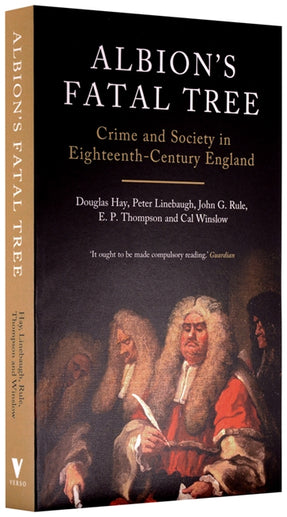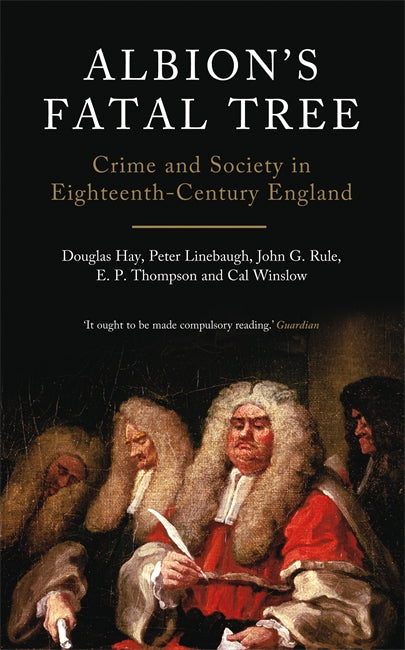
Albion's Fatal Tree:Crime and Society in Eighteenth-Century England
-
20% offRegular price
$34.95Sale price $27.96Add to cart
Renowned social historians examine the gangs of criminals who tore apart English society
In the popular imagination, informed as it is by Hogarth, Swift, Defoe and Fielding, the eighteenth-century underworld is a place of bawdy knockabout, rife with colourful eccentrics. But the artistic portrayals we have only hint at the dark reality. In this new edition of a classic collection of essays, renowned social historians from Britain and America examine the gangs of criminals who tore apart English society, while a criminal law of unexampled savagery struggled to maintain stability.
Douglas Hay deals with the legal system that maintained the propertied classes, and in another essay shows it in brutal action against poachers; John G. Rule and Cal Winslow tell of smugglers and wreckers, showing how these activities formed a natural part of the life of traditional communities. Together with Peter Linebaugh’s piece on the riots against the surgeons at Tyburn, and E. P. Thompson’s illuminating work on anonymous threatening letters, these essays form a powerful contribution to the study of social tensions at a transformative and vibrant stage in English history.
This new edition includes a new introduction by Winslow, Hay and Linebaugh, reflecting on the turning point in the social history of crime that the book represents.
Reviews
Close, meticulous scholarship, imagination, a joyous use of literary and ‘qualitative’ evidence ... and the driving force of commitment make it memorable.
Immensely advances our understanding both of Hanoverian England and of the relationship between law and society in general.
Provocative, full of insights into neglected phases of eighteenth-century social history, and at times profound.
-
Erudite ... and elegantly pungent.
